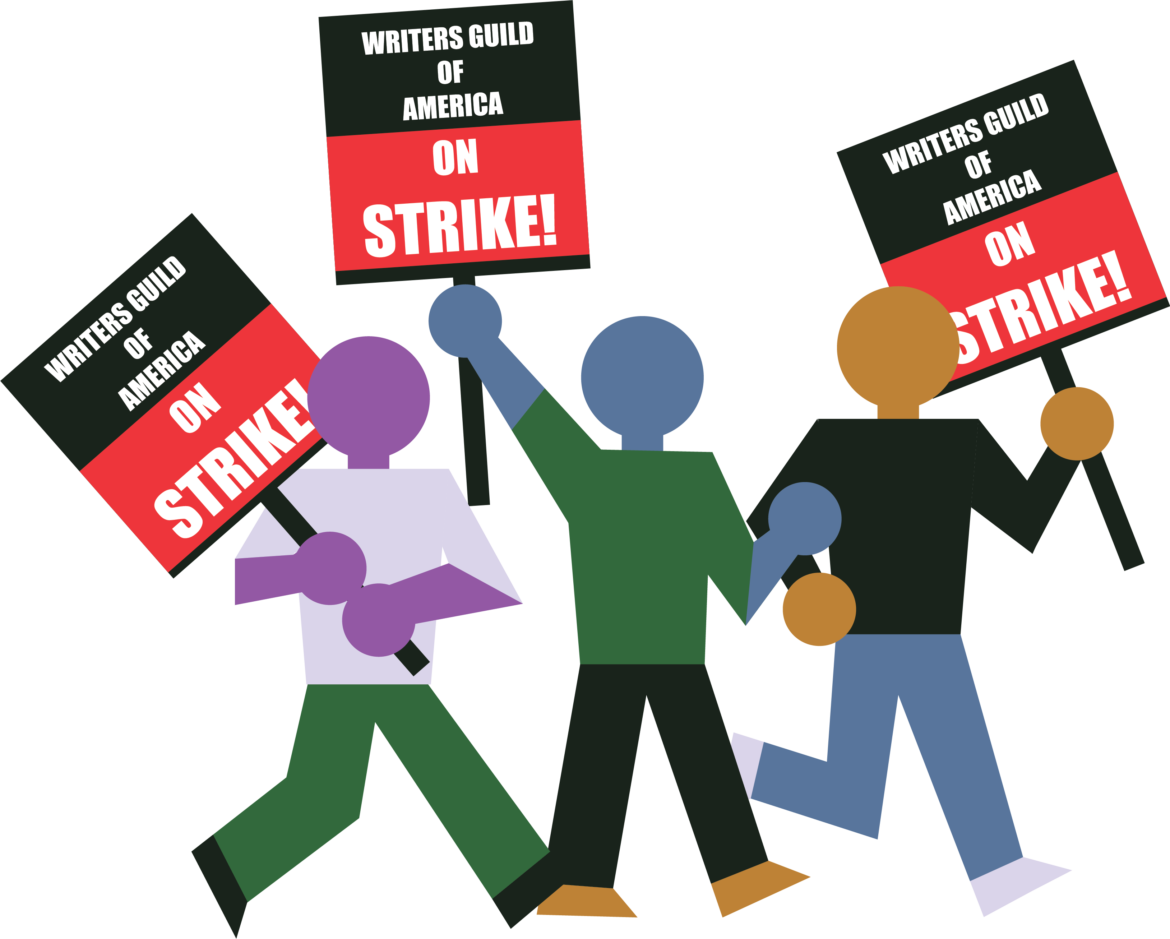Graphic by Ben Evans
Written Maggie Samples
The Writers Guild of America (WGA) ended their 148-day-long strike Sept. 26 after they struck a deal with studios to protect the rights of writers in a world of streaming and artificial intelligence. This was the longest strike in the guild’s history.
Film professor Charles Bane and his wife, assistant professor of English Paulette Bane, co-wrote a screenplay that sold the day before the strike began, so he was following the strikes closely.
“We’ve just been sitting in limbo waiting to see if anything’s going to happen with that script,” Bane said. “So, we’ve been really paying attention to see what’s going to happen.”
Streaming has changed the film industry, and AI is threatening acting and writing jobs. Bane said the strike was necessary to protect the writers of Hollywood. He said his film classes have discussed the strike.
“I was happy to know that [students] were aware that it was going on, that even the freshmen coming in were paying attention to this,” Bane said.
Many people in the film industry belong to a guild, regardless of their job. Bane said that some students had never heard of the guilds before the WGA strike.
“We sometimes think about Hollywood as this magical, mythical place or whatever, but it’s a business,” Bane said. “It’s just like any other business out there that you’ve got to get your foot in the door and then you have to make a name for yourself.”
Bane said it’s important to realize that the actors represented by the guilds are mostly background actors. These are the people whose jobs are at risk of being taken by AI, causing them to lose insurance.
“I just wish people [would] realize that we’re not talking about the stars making $20 million a movie,” Bane said. “That’s not what we’re talking about. We’re talking about the people that are trying to break into the industry, and we have to watch out for those people because that’s where our future Jennifer Lawrences and Tom Hanks and Leonardo DiCaprios and Julia Roberts’s, that’s where they are.”
Senior Caleb Shockley said because he is hoping to find a job that will allow him to work in film after he graduates, he paid attention to the strikes in the news.
“I remember being worried that it was going to last into the next year because it was looking like it might become the longest strike in WGA history,” Shockley said. “That concerned me because I want to be a writer and I’m going to [try to join] that industry soon so I wanted to be able to work when I graduated, and the strike was making me sweat about that possibility.”
Shockley said he is excited to enter the workforce after the strike.He said he hopes the results of the strike lead to a better environment and wages for writers and to progress in creative freedoms.
“It’s good to know that change can happen and, although with some force, studios realize how important writers are,” Shockley said.
The Screen Actors Guild-American Federation of Television and Radio Artists (SAG-AFTRA) remains on strike. Shockley said he hopes the actors will have similar results to the WGA strike.
“AI was a big part of this process, and it is a great tool when studios use it properly,” Shockley said. “Thankfully, the recent deal has forced studios to use it properly for writing, and I hope to say the same about acting soon.”
Senior Grace Strickland hopes to be a writer in the film industry and said her internship plans for the summer of 2023 were interrupted by the strike.
“Hopefully this will make studios realize that every aspect of the film industry is actually very important,” Strickland said.
